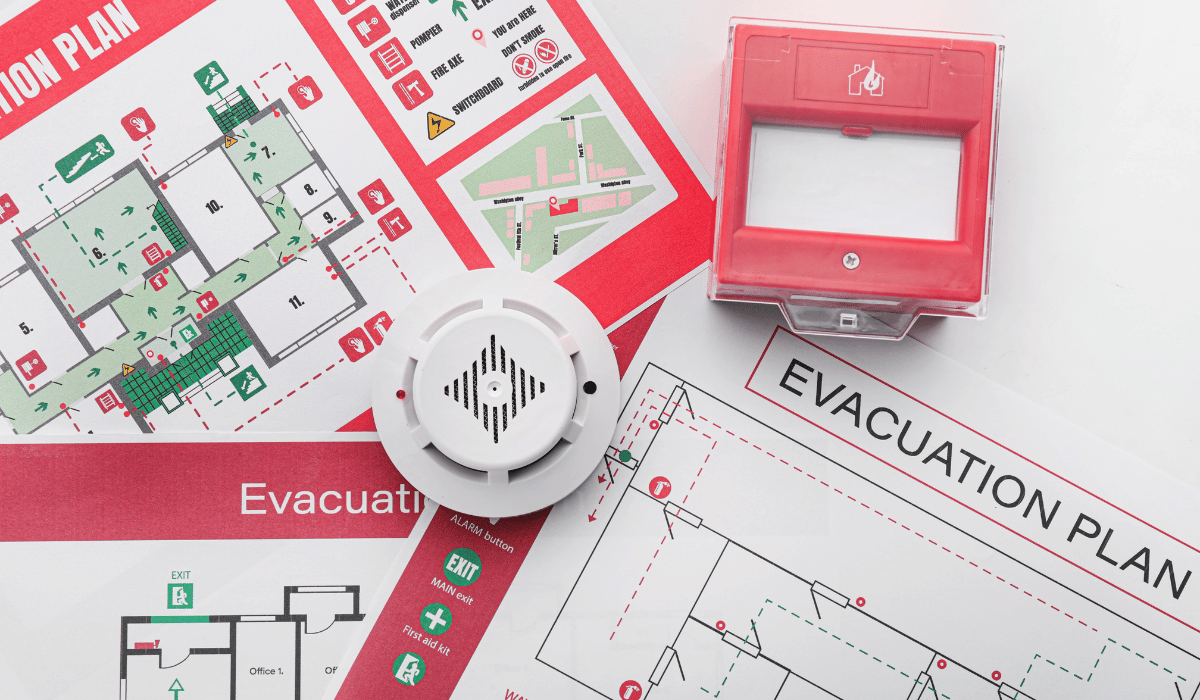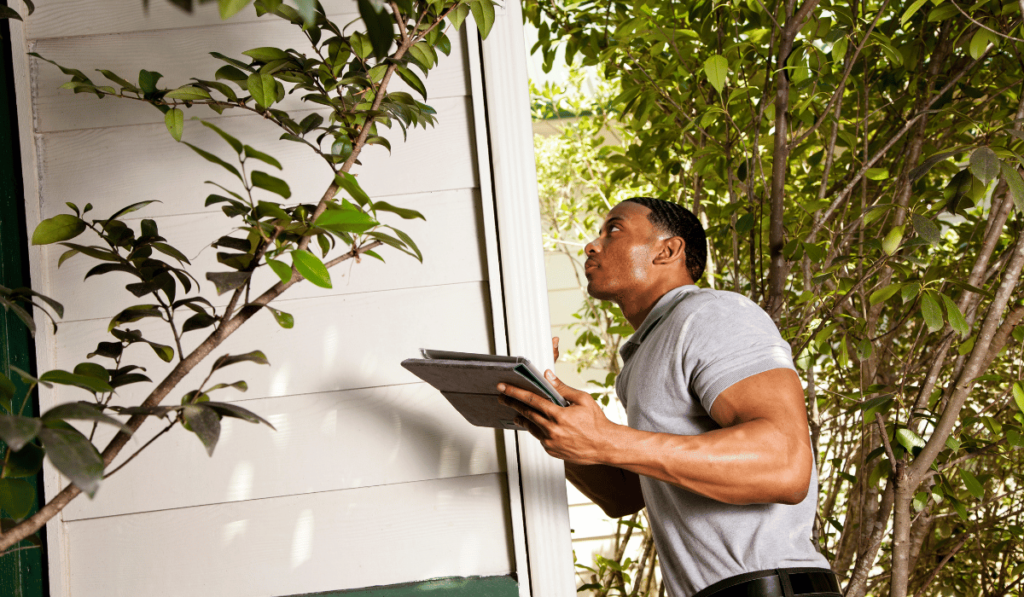Fire Safety for Rentals: Preventing Fires and Keeping Tenants Safe
Reading Time: 3 minutesEvery year, fires cause injuries, property damage, and displacement in rental properties. Fortunately, many of these incidents are preventable through a shared effort between landlords and tenants. This guide will outline fire safety essentials for both parties, helping to create a safe and secure living environment for everyone. Landlords: Proactive Prevention Landlords…

Every year, fires cause injuries, property damage, and displacement in rental properties. Fortunately, many of these incidents are preventable through a shared effort between landlords and tenants. This guide will outline fire safety essentials for both parties, helping to create a safe and secure living environment for everyone.
Table of Contents
Landlords: Proactive Prevention

Landlords have a legal responsibility to ensure the basic fire safety of their rentals. This includes:
- Smoke and Carbon Monoxide (CO) Alarms: Install working smoke alarms on every floor and CO alarms in any room with a fuel-burning appliance (excluding gas cookers). Test them at the start of each tenancy and encourage tenants to test them monthly.
- Escape Routes and Exits: Maintain clear and unobstructed exits. Ensure hallways and stairwells have emergency lighting, and that all exits are accessible from every room.
- Appliance and Electrical Safety: Schedule annual gas safety checks by a qualified professional. Conduct electrical inspections every five years. Provide fire-resistant furnishings if required by local regulations.
- Fire Safety Education: Provide tenants with fire safety information, including building evacuation plans and any smoking or grilling policies in effect.
Tenants: Taking Charge of Safety
Tenants also play a crucial role in fire prevention. Here’s how to be a fire-safe tenant:
- Smoke and Carbon Monoxide (CO) Alarms: Test your alarms monthly and report any malfunctions to your landlord immediately.
- Appliance and Electrical Safety: Only use appliances according to the manufacturer’s instructions. Avoid overloading outlets and report any damaged electrical cords or outlets to your landlord.
- Cooking Safety: Never leave cooking unattended. Keep flammable objects like dish towels away from the stovetop. Regularly clean grease buildup from appliances.
- Open Flames and Candles: Always extinguish candles properly before leaving a room or going to sleep. Follow safety guidelines when using space heaters.
- Escape Routes and Exits: Familiarize yourself with all escape routes in your building. Keep exits clear of furniture, clutter, and belongings.
Fire Evacuation Plan

A well-rehearsed fire evacuation plan is crucial for a safe escape in case of a fire. Here’s how to develop and practice a comprehensive plan with all occupants of your rental unit:
1. Develop a Plan Together
- Identify Escape Routes: Walk through your unit and identify at least two escape routes from each room. Prioritize windows as secondary escape routes if necessary. Discuss the best escape route based on the location of the fire.
- Account for Everyone: Include everyone living in the unit in the planning process, especially children or those with mobility limitations. Plan for assisting those who may need extra help during evacuation.
- Assign Roles (Optional): Consider assigning roles for older children, such as helping younger siblings or checking doorknobs for heat.
2. Designating a Meeting Place Outside
- Choose a Safe Location: Select a meeting place outside the building that is a safe distance from the fire and clear of potential hazards like fallen power lines or debris.
- Plan for Multiple Exits: If your building has multiple exits, designate a primary meeting place and a secondary meeting spot in case the primary location is inaccessible.
- Communicate the Location: Clearly communicate the meeting place location to all occupants and ensure everyone understands how to get there from their rooms.
3. Practicing the Plan Regularly
- Schedule Drills: Conduct fire drills at least twice a year, once during the day and once at night.
- Simulate Different Scenarios: Practice escape routes from different rooms, simulating situations where the primary escape route might be blocked.
- Include Everyone: Ensure everyone in the unit participates in the drills, including children and those with mobility limitations.
- Debrief and Revise: After each drill, discuss what went well and identify areas for improvement. Revise the plan as needed.
Conclusion
Fire safety is an ongoing process. By working together, landlords and tenants can create a safe living environment for everyone. By following these fire safety tips and remaining vigilant, you can help prevent fires and keep yourself and your loved ones safe.
Want to protect your investment and your tenants but don’t have the time? Let Green Ocean Property Management handle the stress of property ownership. Contact us now!
The Ultimate Guide to Handling Common Issues During Tenant Move-Outs
Reading Time: 3 minutesOne of the most significant challenges you’ll encounter as a landlord is when tenants move out of your property. Ensuring a smooth and hassle-free move-out process is crucial for both parties involved. Also, transitioning from one tenant to another can be a complex and potentially contentious phase in the property management journey. Let’s delve into…
The Benefits of Regular Property Inspections
Reading Time: 2 minutesRegular property inspections are essential for maintaining property value, safety, and overall well-being. By identifying and addressing potential issues early on, property owners can save money, avoid costly repairs, and ensure their property remains in top condition. Protecting Property Value Regular inspections can help property owners identify potential issues before they become…
How to Create a Rental Property Marketing Plan
Reading Time: 4 minutesA successful rental property marketing plan is essential for attracting and retaining high-quality tenants. Without a solid marketing plan, rental properties may sit vacant for extended periods, leading to lost income for property owners. This blog will discuss creating a rental property marketing plan that works. Define Your Target Market The first step…








